Discussion of Feminism with Keystone Students (Female Gaze)
Official Audio: https://drive.google.com/file/d/16J_fKV9h67TdvuxUtYZn0uNGL0UssasC/view?usp=sharing
Disclaimer: The views expressed in this audio are held by the speakers themselves and do not in any way reflect the view of Keystone School itself.
TW: Mentions of Rape and Sexual Assault
Ava: Inspired by our passion for feminism and frequent conversations of women issues, we decided to include students and faculty around campus in the discussion concerning feminism and gender equality.
Anjali: Questions were posed to them about their opinions on topics ranging from equality in modern society to major women’s issues today.
Ali: Afterwards, we (Ava, Kaitlin, Anjali, and Ali) examined the nuances and impacts of each response and hoped to emphasize the female narrative.
Ava: Question 1
Ali: When you hear the word “women,” what do you think of? Any role models or characteristics?
Siona: I usually think of my grandmother, my mother, actually, both grandmothers, my mother, and my sister. Mostly, the key people in my life are women besides my dad. So, they’ve greatly influenced who I’ve become, but their strength and intellect really just show the power that women have in today’s society.
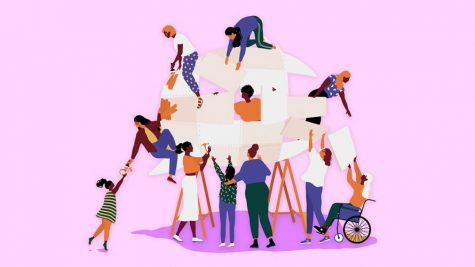 Hashim: When I think of all of the inspirational heroines and women that I’ve had the pleasure of knowing in my personal life and through history, the independence and the strong characters that I’ve gotten to know, like my mother for instance, she’s extremely independent and strong. She’s definitely the first woman I think of.
Hashim: When I think of all of the inspirational heroines and women that I’ve had the pleasure of knowing in my personal life and through history, the independence and the strong characters that I’ve gotten to know, like my mother for instance, she’s extremely independent and strong. She’s definitely the first woman I think of.
Dr. Caraway: Molly Orshansky.
Anjali: Who is that?
Dr. Caraway: Molly Orshanky was a staff economist at the Social Security Administration in the early 1960s, and she developed the concept of the poverty line. She’s the one who put together the ideas of what is the minimum nutrition that you might see in a family. Okay, I think we’re going to assume two kids per family. What’s the minimum nutrition, what’s the minimum for clothing, housing? How much do you need to live on? And she developed the whole concept of the poverty line, which, really, to my mind, revolutionized social policy. This is an example to me of someone who has enormous good sense. Plus, advanced training in economics. She put it to fantastic work. To me, she’s probably the most important economist that no one’s ever heard of. I think that’s a role model, someone who can combine good sense, which I’m not sure can be taught—it’s based partly on experience—with an intellectual pursuit, put the two together, and improve the world. To me, that’s not easily done.
Ava: Question Two.
Kaitlin: What is the single most important issue to women today, in your opinion?
Tim: Violence and being marginalized. Violence is an extension of that because it silences women’s voices, and—I don’t know if I’m really the person to ask—but I find that women often face a dismissive tone, not just in the stereotypical workplace, but in basically every walk of life.
Anonymous: I think continuing the fight for equal rights and trying to minimize the misogyny in our society to the fullest extent that we can.
Andy: I don’t know really that I have the authority to say this because I don’t have to experience some of the struggles that women have to deal with. So, yeah, I don’t know that I can really give a valid answer to that.
Aidan: I think it would probably be rape culture. Publicized issues are, like, the wage gap and stuff like that, however, that can be more easily addressed than rape culture.
Nicole: There are many, but I’m going to go with an issue that I’ve worked within the past couple of years, which is period poverty and a lack of menstrual education. Especially in developing countries, it’s really a problem, and the stigma around menstruation.
Dr. Armentrout: Well, I think—I was just talking about this with somebody over lunch—how the students that are coming through Keystone, for example, right now think about gender in a more nuanced way than I would say even a generation ago. And I think even though gender applies to everybody and is relevant to everybody, I think it’s a super important conservation to women if we’re thinking about just that category of people. And that gender is something that we make in culture and in society rather than it being the same thing, or a synonym, to biological sex, and just that that is becoming a much more understood idea. I think that conversation needs to continue to happen.
Ava: Question Three.
Anjali: Do you think that men and women are equal today?
Alex: No. I think there’s a lot of indicators that they’re not—[the] wage gap is one. I think if you go into basically any male-dominated industry as a woman, you’re going to experience, some sort of, I guess, microaggressions against you because you’re a woman.
Dr. Caraway: In terms of opportunity, no. I think women are still facing the legal and attitudinal disabilities that they have faced. Has progress been made? Yes. Is there room for much more progress? Yes. And some of it is, I mean, you change laws… attitudes sometimes take longer. So, in terms of equality of opportunity, I don’t think men and women are equal. They should be.
Mrs. Hall: No. So, I don’t think that they are. I think we have made great gains, but I still think that there’s still a lot of areas where women are still lagging, and it’s frustrating, especially when it comes to pay. When you talk about women of color, it’s very difficult for women of color to gain equality. So, the answer is no. I think we’ve made progress, but I still think we have a long way to go.
Dr. Armentrout: Do I think that they are equal in our society in terms of status? No, I don’t. Do I think that they are equal in potential? I think… I mean, that old question of potential, that there are certain skills that men and women have. I think we are arrogant to assume we know everything about everybody’s biology and to simplify it by talking about equality of potential for every individual sometimes seems like an oversimplification. But, do I think, in terms of having all kinds of things, I think women have, of course, equal potential to be great in their own individual ways. But are they equal in society? No, and I think that there are all kinds of obvious ways that these conversations that have been happening for a long time about pay inequality, and things like that. But I think it’s the more subtle things that we are learning about and starting to take note of. How women speak, how men speak, how people are heard, how people are responded to, I think these things, we’re still starting to take more notice of. And this is demonstrating how unequal we are, and how deep some of that inequality goes. But I think it’s all kind of amazing that we’re starting to talk about it in different ways. But no, I don’t think equality is really where we’re at.
Kaitlin: After reflecting on the responses we received from students and faculty, Ava, Ali, Anjali, and I held a discussion over our thoughts on what we noticed and how they matched with our beliefs.
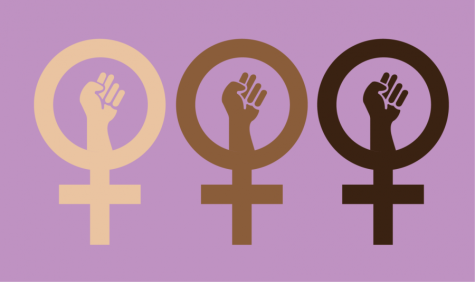 Ava: So, in response to the first question, which kind of talked about what people thought about when defining or thinking about the word “women,” what I’ve noticed is that a lot of people mentioned maternal figures in their life. I know people mentioned their mothers, their grandmothers, and how important they are. And, so, with that, I think people’s first brush with feminism is through maternal figures in their lives, whether that be positive or negative. So, yeah, I just kind of thought that was interesting to see how that connected and how people mentioned the same thing.
Ava: So, in response to the first question, which kind of talked about what people thought about when defining or thinking about the word “women,” what I’ve noticed is that a lot of people mentioned maternal figures in their life. I know people mentioned their mothers, their grandmothers, and how important they are. And, so, with that, I think people’s first brush with feminism is through maternal figures in their lives, whether that be positive or negative. So, yeah, I just kind of thought that was interesting to see how that connected and how people mentioned the same thing.
Ali: That’s interesting that you brought that up, Ava, because I was wondering whether the topic of motherhood should center itself in women achievement, and whether that’s a positive or negative thing. Of course, this excludes women who are biologically unable (or choose not) to have children. For the majority of women who have the ability to have children, should motherhood be the center of their achievements and the narrative that women experience?
Anjali: Jumping off of that, off of Ava’s point, I think her point that feminism and these ideas of gender equality are established in the home or childhood shows how important upbringing is and creating a more equal society because these ideas are formed at home whether they’re positive or whether they’re negative. Yeah, I think that the first brush of feminism is through the maternal figures or really with anybody who you’re exposed to as a child, as a developing person. Also, another thing I noticed is that along with that first brush with feminism people mentioned their maternal figures a lot. A lot of people said that strength was a very defining and common characteristic with women, and I think that, of course, strength is usually a positive denotation, but I think it can also be dangerous to characterize the female gender as “strong.” Is it setting a standard of women having to be strong in situations and having to kind of maintain this emotional silence, in a sense?
Ava: I’d like to kind of go off of that. I think when we talk about strength and how that’s kind of synonymous with women, I think it kind of goes to what feminism really means. In my perspective, I think that feminism is tied to what the success of men is. I think men have told us and set the standard of what success looks like and what strength looks like, and I think we’ve been conditioned, and it’s not our fault. It’s through the systems that we live through, and that’s what strength is, and I think it has to do with what defining feminism really means and if that is upholding a standard that was created by men.
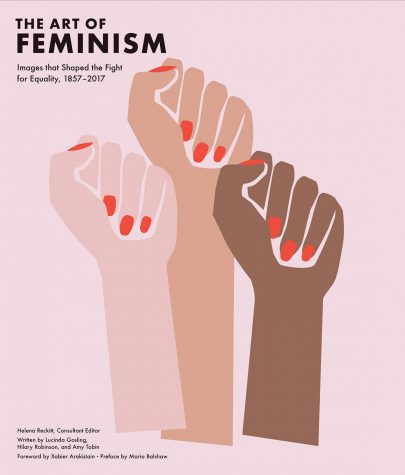 Kaitlin: And sort of going off with what Ava said about strength, there is a different type of strength associated with women. It’s not physical labor or anything like that. When you think of a strong, independent woman, it may not always be corresponding to, like, career-wise. Sort of on a different note, Dr. Caraway had mentioned that not enough female role models are exactly known about or acknowledged for their achievements, and the woman that he mentioned was, he called “the most famous economist that no one has ever heard of” Mollie Orshansky who came up with the idea of the “poverty line.” She was a very, very learned economist and was very knowledgeable in her field, but no one really knows who she is, and that’s a tragedy that we lose these female figures every day. There are women doing things out there contributing so much to society, yet men are often credited for their work, and these women are overlooked despite the hours they put into their craft, honing their knowledge studying. There’s just so much that we don’t see overall because men overshadow women routinely, and that’s something we have to work through as a society, being sure that everyone is recognized for their efforts, especially women.
Kaitlin: And sort of going off with what Ava said about strength, there is a different type of strength associated with women. It’s not physical labor or anything like that. When you think of a strong, independent woman, it may not always be corresponding to, like, career-wise. Sort of on a different note, Dr. Caraway had mentioned that not enough female role models are exactly known about or acknowledged for their achievements, and the woman that he mentioned was, he called “the most famous economist that no one has ever heard of” Mollie Orshansky who came up with the idea of the “poverty line.” She was a very, very learned economist and was very knowledgeable in her field, but no one really knows who she is, and that’s a tragedy that we lose these female figures every day. There are women doing things out there contributing so much to society, yet men are often credited for their work, and these women are overlooked despite the hours they put into their craft, honing their knowledge studying. There’s just so much that we don’t see overall because men overshadow women routinely, and that’s something we have to work through as a society, being sure that everyone is recognized for their efforts, especially women.
Ava: So, going to our second question, which was about what they thought was the most important issue to women, we got a lot of different responses. But the first response from Timothy Castillo, he talked about violence and how big of an issue that is and how it’s obviously a result of deep-seated misogyny. But if we think about it, women are so vulnerable to violence. I mean, women can’t run in their neighborhood because they are so scared of violence, and he talked about how even in the workplace, you’re so prone and vulnerable to violence, and I think that’s a really big issue that not a lot of people think about. It’s always women that bring up that issue. It’s always in the forefront of their mind, always trying to protect themselves, always carrying pepper spray, taking all these measures that men don’t have to take care of or think about.
Anjali: Also, a common response to the discussion on sexual assault and sexual violence towards women, as a solution to that, unfortunately, I’ve heard a lot of people say, “Oh! Women should just learn self-defense.” They should learn how to protect themselves from these attacks, and that’s their initial thought, not the initial idea of men should stop attacking women. And so I think that definitely plays into this topic of violence towards women. A lot of the time the violence that women face, it’s basically victim-blaming. They have to deal with victim-blaming on top of that. That it was somehow their fault, or that they should be the ones to take the initiative to defend themselves when in reality, it’s men who have to teach other boys and other men to essentially fix themselves. It’s not our job to fix them. It’s their job to self-repair, and they should take that initiative. But unfortunately, we aren’t seeing a lot of that today.
Ali: Anjali, you make such an amazing point because I think this goes on, with not just a dismissive tone towards women’s issues, but just like a male fragility towards taking responsibility and taking accountability for what they’ve learned and what they do day-to-day that they don’t realize affect women and that kind of reminds me of the #MeToo movement. Any sexual allegations, the first reaction is like money-grabbing, or like, the first reaction is I’m taking advantage of the situation, and I think having that initial response is very fragile, means that certain men are very sensitive to being accused, taking responsibility, owning up to what they do, and another term that reminded me of their tone that they have towards women’s issues is “nazi-feminism.” I think that it’s a very harmful term to use when discussing a female activist or any woman who tries to stand up for themselves. One moment, you say you believe in equality. Next moment, when a woman tries to speak up, you call them a “nazi-feminist” or being too left. I think the tone and male fragility is a big problem [sic].
Anjali: I agree with everything you said, Ali, and I kind of wanted to bring it back. [In] Andy’s comment to the second question, he said it’s not my place to really define women’s issues, to talk about the most important issue, because he isn’t a woman or hasn’t gone through the female experience. And I think that parallels at least my idea of how feminism should progress. I think women should be in the driver’s seat of this movement, dictating what should be pushed forward and what ideas are okay or not okay. Men, I would hope, should play a more supportive role, not an executive role. So I thought that was a very mature comment on Andy’s part, and I really liked that.
Kaitlin: On the topic of women being in the driver’s seat, a particular example came to mind, and that would be the tax on feminine products which a lot of men don’t realize is a thing, and you shouldn’t be pushing that sort of thing to the side because it’s something that affects women every day! And, period poverty is a huge issue, and it’s not just third-world countries that this happens in, it’s also here in America. And 1 in 4 women experience period poverty ranging from the inability to purchase menstrual products or inability to go to work or school due to pain affiliated with menstruation, and it’s just an issue that is overlooked and unavoidable. It should be focused on more.
 Ava: Kind of going to another person’s response, I know Aidan brought up the topic of rape culture. According to the CDC, 20% of women have been raped or experienced attempted rape, and I think that, you know, as women, we have to take so many precautions in our lives to try and protect ourselves. Something I found was interesting in Aidan’s response, he talks about how there [are] other issues like the gender pay gap that can be more easily fixed through law-making and things of that sort, but with rape culture, it has to do a lot with attitude and victim-blaming. It’s interesting coming from, especially, from a guy talking about rape culture because it’s so centered around “is she telling the truth?”, “is she lying?”, “did that actually happen?”, “was she inebriated?” So I thought that was really interesting, and I’m interested to see if any of you guys want to comment on what Aidan said.
Ava: Kind of going to another person’s response, I know Aidan brought up the topic of rape culture. According to the CDC, 20% of women have been raped or experienced attempted rape, and I think that, you know, as women, we have to take so many precautions in our lives to try and protect ourselves. Something I found was interesting in Aidan’s response, he talks about how there [are] other issues like the gender pay gap that can be more easily fixed through law-making and things of that sort, but with rape culture, it has to do a lot with attitude and victim-blaming. It’s interesting coming from, especially, from a guy talking about rape culture because it’s so centered around “is she telling the truth?”, “is she lying?”, “did that actually happen?”, “was she inebriated?” So I thought that was really interesting, and I’m interested to see if any of you guys want to comment on what Aidan said.
Anjali: Kaitlin and I were discussing this earlier about how we focus a lot on rape, and yes we should, but there are other forms of sexual assault and harassment that women experience even on a day-to-day basis. There is a build up of submissiveness towards harassment and having to be quiet about other forms of harassment that have built up this attitude that it’s okay to take advantage of a woman like that.
Ali: I also want to clarify for the audience that feminism shouldn’t just apply to cisgendered women. It should be tailored to each woman’s personal experiences and differences.
Kaitlin: I guess to sum that up, feminism doesn’t mean one thing exactly. It’s like a bunch of movements together, and a mindset towards equality, and that’s between different gender identities as well. It isn’t just equality between cisgendered women and men, it’s for equality between every gender.
Anjali: On the topic of feminism being narrowed down to cisgendered females, I think we’ve seen a lot especially in the past couple of years, even though I’m sure this has been going on far beyond that, that transgendered women have been [at] the receiving end of a lot of dangerous violence. There is that dichotomy of feminists, people who are out [and] saying “I support women, I am a feminist,” and being proud about that, [while] you have them turn around and be transphobic towards trans women. I think that’s disappointing because feminism should be the equality of all genders. I think [that] narrowing it down to just cisgendered females doesn’t parallel the goal that we’re trying to work for, which is equality.
Kaitlin: So now we move on to the third question, and one of the first responses had to do with the gender pay gap. It’s a term that you hear a lot when you’re talking about feminism, and it’s one of the bigger issues that people tend to pay attention to. It’s not just about the money. The gender pay gap is more about the value of a woman’s work, and how important she is viewed as being by her employers and her coworkers. By paying women less than you’re paying men, you’re basically saying that any work that she’s doing is not worth it. Her work, her time, her effort is not worth as much as a man’s [sic]. That is…you can’t put into words how frustrating that feeling is, knowing that people think that using a woman’s time is not as meaningful as using a man’s time. What does that say about society? Do we devalue women’s contributions outside the house?
Ava: I’d like to discuss what equality means in terms of potential and equal treatment. In my opinion, solidifying equality between all genders is the bare minimum. For women, I believe that it’s important to continue the fight for equality, but I do think that we should be working to create our own standards that are not created by men. When talking about potential and success, women are held to the standard of what men have deemed as successful, strong, and so on. Because women have such a catered experience, I believe that feminism is about liberation and building the foundation and standards on our own, without the grasp of the male gaze.
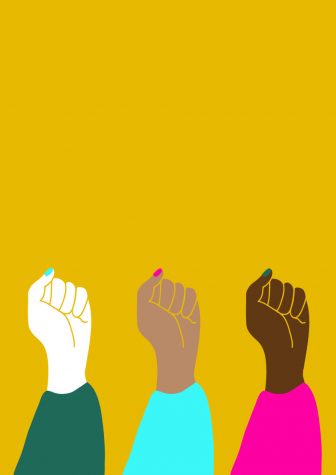 Ava: Moving on to one of our responses from Dr. Armentrout, she talks about misogyny and how it’s how it’s less overt than it was before, and how it’s more concealed through ‘microaggressions.’ Just to define ‘microaggressions’ for any listeners who aren’t necessarily familiar, microaggressions are defined as the “everyday, subtle, intentional — and oftentimes unintentional — interactions or behaviors that communicate some sort of bias toward historically marginalized groups.” Internalized misogyny is something [that] I am really passionate about, and something that I think we can all agree on is that we all live with a form of internalized misogyny. We live in a system that is, truly in my opinion, against women. It has been built, obviously, by men. So, I think that the recognition that we all have internalized misogyny within us is really important in trying to make steps forward and trying to fight for equality…and most importantly, past equality [for] greater successes than that.
Ava: Moving on to one of our responses from Dr. Armentrout, she talks about misogyny and how it’s how it’s less overt than it was before, and how it’s more concealed through ‘microaggressions.’ Just to define ‘microaggressions’ for any listeners who aren’t necessarily familiar, microaggressions are defined as the “everyday, subtle, intentional — and oftentimes unintentional — interactions or behaviors that communicate some sort of bias toward historically marginalized groups.” Internalized misogyny is something [that] I am really passionate about, and something that I think we can all agree on is that we all live with a form of internalized misogyny. We live in a system that is, truly in my opinion, against women. It has been built, obviously, by men. So, I think that the recognition that we all have internalized misogyny within us is really important in trying to make steps forward and trying to fight for equality…and most importantly, past equality [for] greater successes than that.
Kaitlin: Thinking that you aren’t misogynistic at all can truly be more dangerous, because you aren’t recognizing what you’re doing. You’re thinking that you’re acting wholly correctly, and it’s extremely dangerous to be blind in those sort of situations because you may be hurting people more than you know.
Anjali: That points to something I remember Dr. Caraway saying in his response, that you can change laws but it takes longer to change attitudes. I think that’s very, very true.
Ali: On a final note, [regarding] Mrs. Hall’s response about emphasizing the experiences of women of color specifically, I think [that] it’s important to talk about the disparities and the differences [and the gravity of the experiences] that each female community [has to undergo]. For example, BIPOC (Black, Indigenous, and People Of Color) women have to experience higher levels of homicide, they have to experience greater effects of the wage gap, disenfranchisement. All of the [major] women’s issues have been amplified [for them] and some of [their] voices are minimized in those communities, so it’s important to also talk about [how] this is not just the white woman’s perspective. It should be encompassing all ethnicities and all races as well, because every woman experiences something differently, and to a much different extent.
Kaitlin: Thank you guys so much for taking the time to listen to this. Listening to things like this and taking an interest in women’s issues is the first step towards finding a solution to these issues, and beginning to try to address the nuanced problems that we face as a society today. So, thank you so much for taking the initiative, and we really, really, really appreciate it.
Ali: Yes, thank you so much. It’s very difficult sometimes to talk about [women’s] issues on a public platform, because you’re just reminded of all of the obstacles and traumatic experiences that we have to go through. So, it’s not easy, but we hope that these conversations can help and contribute to your knowledge of [women’s] issues.
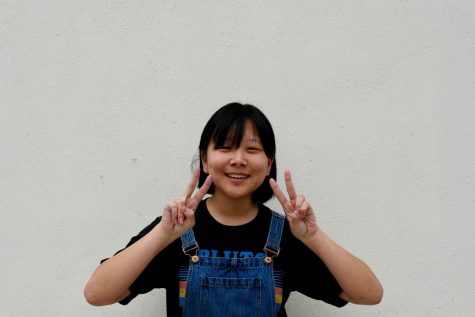
Ali Wu, a senior, is excited to represent art in the Keynote with Siona this year! She aims to connect the Keystone community through writing and comics!...
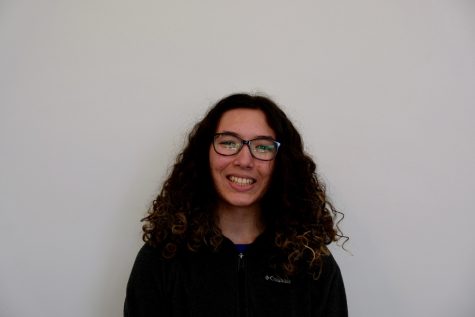
Kaitlin is a senior at Keystone School and has attended the school since she was in sixth grade. She is a part of Academic World Quest, Model United Nations,...

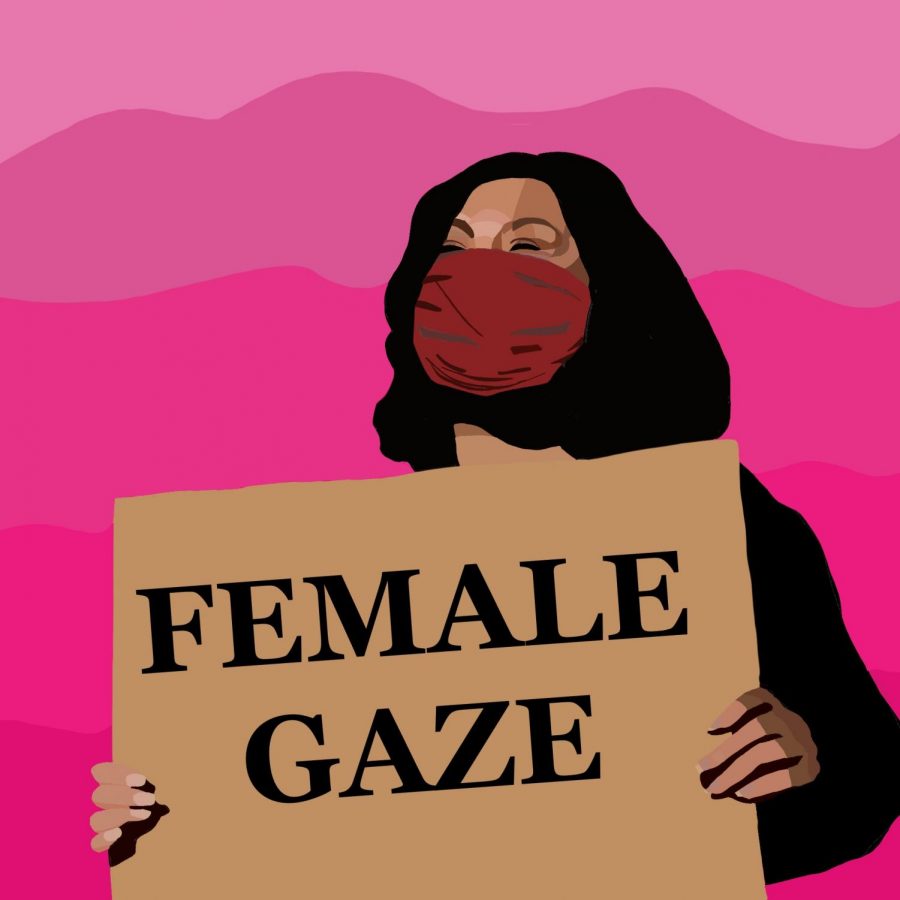
Ali • Apr 9, 2021 at 12:03 pm
WOOOOOO!!!!!